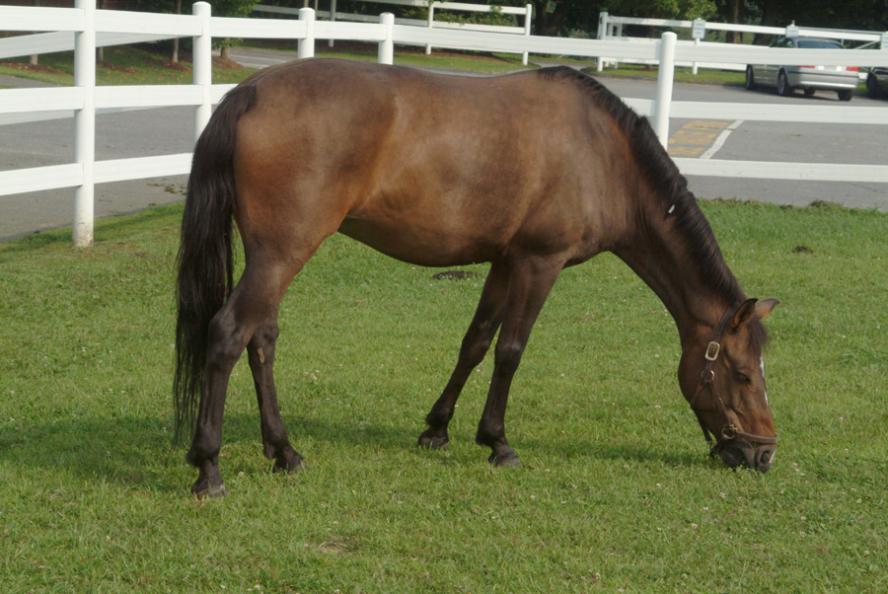-
About
- Leadership & Faculty
- News & Events
-
Admissions
-
Academics
- Graduate
- Advanced Clinical Training
- Continuing Education
- Academic Departments
- Academic Offices
- Simulation Experiences
-
Student Life
- Offices
-
Research
-
- Transformative Research
- Centers & Shared Resources
-
-
Hospitals & Clinics
- Emergency Care
- Hospital Services
-
Community Outreach
- Volunteer
What Happens When a Horse’s Immune System Goes Awry?
A horse’s immune system is his own personal security detail. It is a very complex and efficient system of cells that carry out specific processes and each of these processes relies on another, working round-the-clock to keep your horse feeling well.

Ahorse’s immune system is his own personal security detail. It is a very complex and efficient system of cells that carry out specific processes and each of these processes relies on another, working round-the-clock to keep your horse feeling well.
But in rare cases, a horse’s immune system can go awry and attack healthy cells. Whether this happens without provocation in the body or is triggered by an outside cause, it falls under the term immune-mediated disease.
What Are the Causes?
Immune-mediated disease types are broken down as primary or secondary. The source of primary immune-mediated disease, also known as autoimmune disease, is often not well-understood, similar to that of many autoimmune diseases in humans. What is known is that in these cases the body mistakenly attacks and damages its own tissues.
In a secondary immune-mediated disease, the cause of an immune response in the horse’s body, especially the production of antibodies, is foreign. This could be a bacterial or viral disease, an antibiotic, or any other foreign substance.
What Types of Immune-Mediated Diseases Are There?
A number of equine diseases are considered to be immune-mediated in origin and they affect different parts of the body. Following are just a few examples:
Immune-mediated myositis (IMM) is an inherited disease that affects Quarter Horses. It is often triggered following exposure to or vaccination against respiratory infection by equi.equi—the cause of Strangles. A muscle disease, it causes rapid and severe deterioration of the horse’s topline. IMM can often be reversed over a period of months, however, recurrence is not uncommon.
- Immune-mediated keratitis (IMMK) is a disease of the eye believed to be caused by a dramatic corneal immune response and is distinguished by chronic corneal cloudiness lacking ulceration. It typically affects only one eye, however it can impact both. IMMK can be treated with topical NSAIDs, but its success is dependent on how deep the disease it.
- Pemphigus foliaceus (PF) is a dangerous skin condition for horses. Common symptoms include blisters and pustules that frequently rupture and be seen oozing, crusting, and scaling. It is treated with immunosuppressive therapies like corticosteroids, but prognosis is often guarded in adult horses.
How is an Immune-Mediated Disease Diagnosed and Treated?
As in people, immune-mediated diseases can be difficult to diagnose. Symptoms and clinical signs can often be general, so the veterinarian must observe them as well as lab test results over time. Because there are so many types of these diseases that involve a wide variety of body parts and systems, prognosis and treatment vary case-to-case, and can range from minimal management and support to, in some cases, euthanasia.
The Internal Medicine team at Tufts Equine Center is equipped with the knowledge and technology to offer specialized care for your horse for a broad spectrum of medical conditions including infectious, immune-mediated, endocrine, nutritional and metabolic problems. Our board-certified veterinary specialists provide 24-hour intensive care and medical services in our state-of-the-art facility.